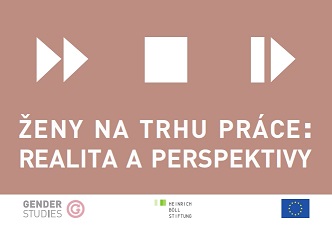
We kindly inform you that, as long as the subject affiliation of our 300.000+ articles is in progress, you might get unsufficient or no results on your third level or second level search. In this case, please broaden your search criteria.

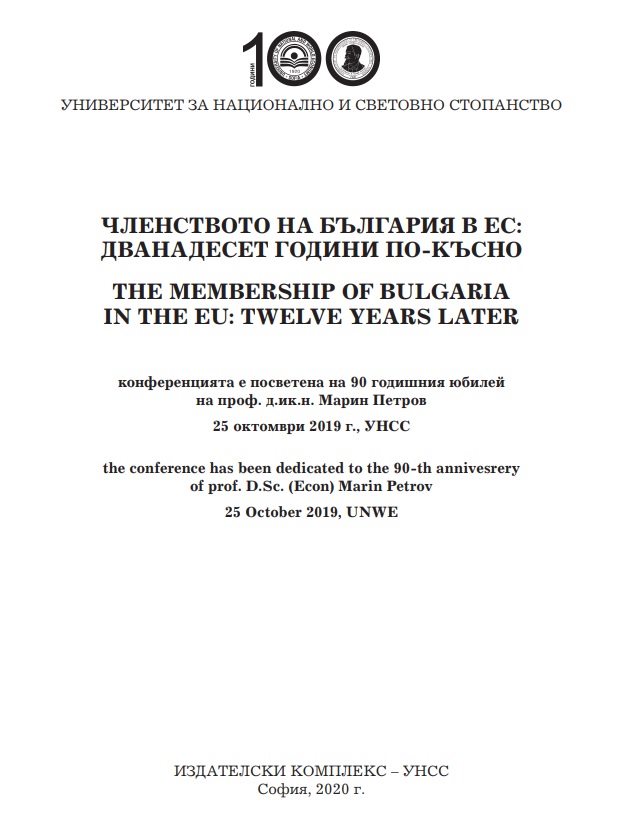
This paper studies the efficiency of tertiary education expenditure by a comparison between EU Member States in Central and Eastern Europe with respect to the effects related to the quality of education obtained through the application of the Data Envelopment Analysis (DEA) method. The paper introduces a new approach to measuring the outputs of tertiary education expenditure related to realization on the labour market and welfare. The results of the study show that, among seven CEE countries, EU member states, only in Romania efficiency of tertiary education expenditure is observed, while Bulgaria shows the largest deviation from the efficiency frontier.
More...
This article discusses the competitiveness beyond its economic nature, infl uenced by the concept of sustainable development, and expanded to the issues of environmental in the centre, it is a crucial objective for the economies, reinforced by the common European challenges and context of development. In this sense, the study‘s purpose is to analyse the development of Bulgaria through several key factors of infl uence in the three directions. Based on them, specifi c recommendations are proposed to achieve sustainable competitiveness primarily through the achievement of high added value by stimulating intellectual capacity and increasing management effi ciency. Further, it is open a discussion about a new stage in the development of the competitive race, marked by „shared“ (cooperative, solidarity) competitiveness.
More...
The paper presents an assessment of the opportunities for the Bulgarian economy and the Bulgarian business to move towards sustainable development under the concept of corporate social responsibility. On the part of CSR supporters, the concept in question is not just a channel for a transition to sustainability; they identify it with sustainable development. This paper is not intended to deny the concept of CSR, but to specify the limitations to CSR on the road to sustainability, on the one hand, and the defi cits related to CSR adoption in business management practice in Bulgaria. Based on a theoretical analysis within the system approach, the relationship between the two is interpreted: the concept of CSR and the concept of sustainable development. The main challenges to the process of CSR transformation into a means of transition to sustainability have been identifi ed. Results from a representative empirical study by other authors on CSR issues are also commented on.
More...
Growth is the most important feature in the functioning of all modern business organizations and economies. It is the result of rapidly changing elements of the local, national and international socio-economic environment. The strength and direction of their impact to a certain extent depends on the specifi cs of the subject of activity and the target orientation of the enterprises. It is this impact that brings elements of uncertainty and instability to business development. In the last few decades, comprehensive methodologies and principles have been developed for the implementation of innovation in governance aimed at standardising good and effective practices so that they can be quickly and easily applied to different types of Organizations. In this publication, an attempt is made to justify the construction of an innovation accelerator leading to increased business growth.
More...
The rationale for investment and fi nancial decisions for business development in the real sector of the economy at risk is based on the development of their theoretical foundations. Particular attention is paid to the peculiarities of the business risk assessment in the real economy compared to the risk in the fi nancial sphere. To this end, we analyze the risk factors in different sectors of the economy that determine the opportunities for diversion of future business outcomes and also the specifi city of the main risk management methods. In this respect, key risk measures for the different activities and the theoretical criteria for assessing the risk decisions used in the decision-making process in the fi nancial markets take the cornerstone.
More...
The dynamic business environment changes and imposes the emergence of different forms of marketing, transforms demand and supply, modifi es consumer behavior itself. Managers at different corporate levels face a number of challenges to address these changes and respond to the ever-increasing pressures of technology, and in particular, digitization in all areas of life. The development of sustainable marketing is a kind of response to any changes that include even those on the planet as a whole. Wonderful and worthy of respect is the example given by Bulgarian companies or those that enter the Bulgarian market.
More...
The Bulgarian state is the largest owner of agriculturall and son theterritory of Shumen Province. The State Land Fund is effectively managed throught heright choice of different time frames of short, medium and long-term leases inorder to achieve anoptimalsolution. The results, such as abid price and anaveragerent price, are very important and the Income Amount from ownership and control of agricultural land sin the republic an budget is directly dependent up on them. The results of analyzing the allocation of state farmland for previous business years should be the basis for a decision-making and the follow-up tender procedures.
More...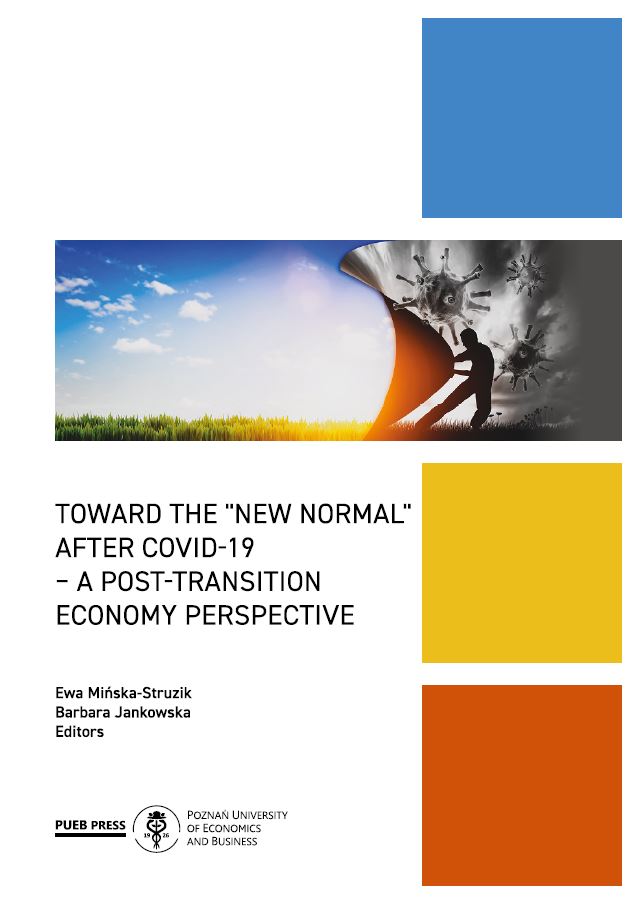
Purpose: The authors aim to briefly present the adoption of Industry 4.0 technologies among Polish companies in the realm of the VUCA world. These solutions may work as measures that increase the resilience of companies against the Covid-19 crisis and support the recovery in “the new normal” reality. Design/methodology/approach: The paper combines literature studies with an empirical investigation in the form of computer-assisted telephone interviews conducted among 400 Polish manufacturing companies. Findings: Polish industrial manufacturing firms lag in implementing I4.0 technologies compared to their Western European counterparts. Research limitations/implications: The empirical part of the study was conducted among Polish companies. Similar studies among firms from other CEE countries will be necessary to conclude about this part of the world’s readiness to adopt 4.0 technologies. Practical implications: The pandemic era and increasing I4.0 adoption pose particular tasks for companies. They should revise their contractual arrangements with IT service providers and focus on data privacy and security topics, but also industry-specific regulations. Triggered by the Covid-19 crisis, these actions may contribute to developing companies’ comprehensive digital strategy in the “new normal” reality. Originality and value: The chapter contributes to the discussion on the readiness of companies and economies to adopt the Industry 4.0 technologies. It also provides the level of the adoption of these solutions in the context of a post-transition economy.
More...
Purpose: The aim of the chapter is to present the competence patterns before and during the economic crisis and to determine the importance of individual competences for doing business in a turbulent environment. In many sectors of the economy, global changes triggered by Covid-19 called into question the use of existing sets of competences needed to run businesses effectively in supply chains. The continuous improvement of supply chains – or lean and agile management – will no longer work in current conditions. Faced with an increasingly unstable economy triggered by a global pandemic, many economists ask whether the existing competence patterns in companies or supply chains remain appropriate and proper for the current economic situation. Design/methodology/approach: In 2017, a survey was conducted among selected experts in the pharmaceutical sector. The same questionnaire distributed in September 2020, during the Covid-19 pandemic. The experts were highly qualified managers employed in transnational companies. The 10 respondents were asked to indicate selected competencies. The choice of the pharmaceutical sector was motivated primarily by its specific characteristics as it is particularly important not only economically but also socially, by providing life-saving medicines. Findings: Technical competences are becoming the necessary ones. This is due to the need for self-sufficiency in lockdown situations, when it is difficult to find external employees and the possibility of outsourcing skills. In the case of managerial competence, it is clear that creativity and entrepreneurial thinking have increased in importance. When analyzing social competences, what comes to the fore is diversity of intercultural skills: foreign language skills, the ability to compromise, the ability to transfer knowledge, and finally, the ability to adapt to change. Originality and value: This chapter answer what competences seem necessary for future managers in the pharmaceutical industry in a turbulent environment, which is crucial for research and teaching centers who seek to educate future managers at the highest level of specific competences and skills. Due to the dynamic development of the industry, the text identifies the needs in the areas of technical, managerial, and social skills.
More...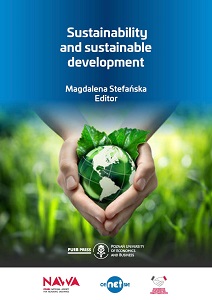
The aim of the current chapter is to present the essence of sustainable consumption andits basic rules: Reduce-Reuse-Recycle. Minimalism and sharing economy were presented as the manifestation of the Reduce rule. Reuse requires distribution systems which will give access to preowned products (in a broader scope), thus, they will provide products with a second life. This may be provided by alternative retail formats which are oriented towards the sale of second-hand products. Some of these formats, especially online applications, are becoming quite popular—their number, as well as the amount of their customers is rapidly growing. Also, traditional mainstream retailers have become involved in second-hand product sales.
More...
The aim of the chapter is to explain how to incorporate Sustainable Development Goals (SDGs) into corporate strategy in order to increase the competitive advantage of a company in thelong-run. The questions how to set a mission, vision and objectives to prepare annual reports in the field of sustainability will be discussed. Furthermore, motives as to why companies have to consider local and global perspective when setting SD objectives and the problem of conflicts in SD goals will be determined.
More...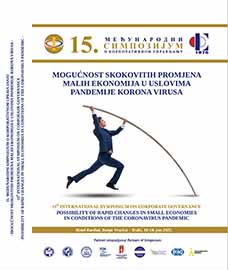
Since 2020 the modern world has been witnessing a complex crisis, which is essentially a medical crisis (the COVID-19 pandemic) within a structural economic crisis. In addition to the current nexus of risk stressors, such as anthropogenic climate crisis, biodiversity loss, financialization and income inequality, all global and cross-cutting by their very nature, in the last period biorisk has been growing dramatically. The COVID-19 pandemic is a devastating and tragic moment which is rapidly becoming a matter of primary public concern. Social distancing, as the most effective anti-pandemic measure, has pushed the economy into sleep mode. Hibernation provokes a truly systemic economic downturn. The current crisis is particularly deepening structural imbalances of the neoliberal model of capitalism. Core policies responses, such as liquidity infusion and fiscal stimulus, are massive and permanent. Increasing moral hazard and irrational exuberance, such policies are destroying capital markets,as a brain of the market economy. But every crisis is also a chance to change. By tackling the neoliberal capitalism’ fault lines in a more effective way, it may actually accelerate the pace to the future we had in mind. A quick restart (or recovery) of the economy and a later rebound require systemic and concerted action in order to mitigate the negative effects of both medical and economic crisis. In managing a complex crisis such as this one, guided by the vision o fa sustainable, inclusive and prosperous economy, governments all around the world should take radical reform steps. It means, at least, two things at once. First, dealing with the pandemic as a macroeconomic variable. Second, implementing core economic policies (monetary and fiscal) in a structural way. To do so, the transition from shareholder capitalism to stakeholder capitalism is imminent. An emerging system will combine two institutional choices,the “visible hand” of state (impact investments based on structural or industrial policies)and the “invisible hand” of market forces. It’s time to give the government a stronger voice in the economy. To create value instead of redistributing value, the major part of impact investments will be in circular and regenerative economy, health care, infrastructure (physical and conceptual), science, and education. The objective of this paper is twofold. First, to fill the present conceptual vacuum created by the neoliberal doctrine economics rules with the aim of identifying key components of Serbia’s economy revival based on its macroeconomic specifics and catalytic impact of new economics rules during and after the COVID-19 pandemic.Second, to highlight the relevance of key components of stakeholder capitalism, including the regenerative and circular model of growth and heterodox economic policy platform for the Great Reset, or recovery and rebound respectively.
More...
The coronavirus pandemic represents a major shock for the global and EU economies and is expected to bear unpredictable, yet severe and long-lasting socio-economic consequences.Health crises provoked economic contagion and is now, it seems, spreading as fast as the disease itself. During the crisis, national economies found themselves in a free fall with different velocities. In general, it is expected that COVID-19 will take much higher toll in terms of GDP if compared with three main crises in past 100 years: the great depression in 1930s, first OPEC oil crises in the 1970s and the recent financial crises in the period of 2007-2009. Global GDP is projected to contract by about 4.4 percent in 2020, which is a sharper downturn than during the Global Financial Crisis in 2008-2009. It is then expected to rebound by 5.2percent in 2021, implying that global output should recover above it 2019 level but remain well below the level projected in the autumn 2019 forecast.The health and economic crisis has led to a significant job crisis that will increase the inequality and widen the gap in social structures. This paper presents the role of business and societal resilience. At the policy and societal level, the COVID-19 crisis has brought about a will to question the current functioning of economy and society with citizens’ initiatives. The economic system supporting the increasing share of precariat workers due to gig economy and deterioration of workers’ bargaining power, eroding the public institutions by austerity measures and siphoning value out of the economy by rewarding shareholders through stockbuyback schemes, rather than supporting investment in research and development, wages,and worker training, has proven to be ineffective to combat serious exogenous shocks. The current crisis calls for a new policy approach, based on theoretical foundations of (i) the developmental state, (ii) legal institutionalism and (iii) the entrepreneurial state.During the recent COVID crisis the switch in policy paradigm will improve the resilience of the companies in order to be capable of managing future disruptions and handling the most important challenges we need to solve like climate change, inequalities or financial crises, by reaping the synergies between collaboration, digitalization and sustainability.
More...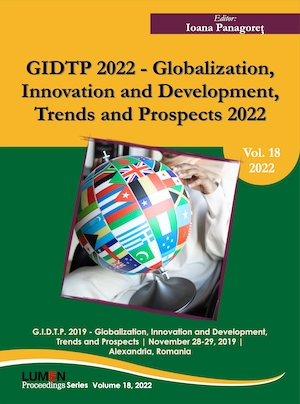
Motivation has the potential to make a difference in terms of results both individually and organizationally. Motivation based on classical processes, such as the theory of hope, the theory of goal setting and the theory of equity. In the social context of governmental organizations, public values have the potential to infuse the value structures of organizations and individuals, leading to forms of prosocial motivation that focus on supporting the public interest and helping citizens. The management of human resources has evolved considerably since this function was named the Personnel Administration. Currently, organizations do not only manage resources, but focus in particular on the proper management of human capital. There are many aspects of human resources management, all of which are just as important for the development of an organization.
More...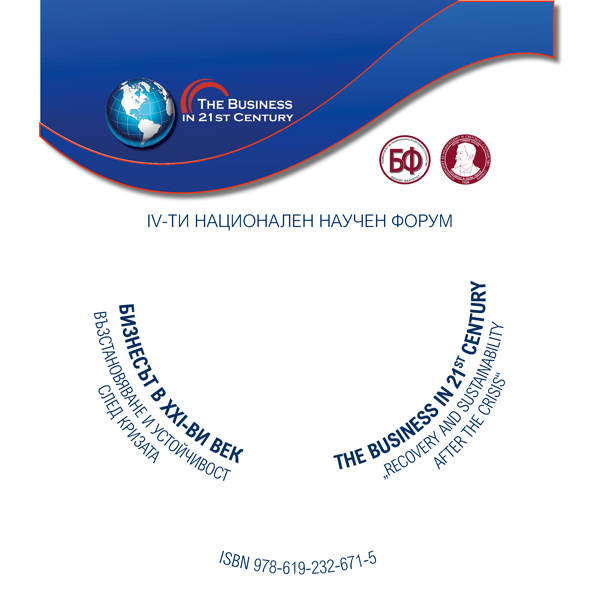
Global technological advances continue to bring about major changes. The present study aims to address important aspects for the application of Education 4.0 for the fourth industrial revolution, immediately following the COVID-19 pandemic. The research work focuses in particular on modern technologies for education and training, responding to the challenges and opportunities of business in the conditions of Industry 4.0. Research methods and techniques based on desk research and data from secondary sources, including strategic document analysis and content analysis, were used. The findings indicate that investments in the development of environmental infrastructure and human, technical and financial capacity must be strengthened to reach an adequate participation of Education 4.0 in the post-Covid Industry 4.0.
More...
In times of social and/or economic crises, the most vulnerable members of the society face more significant difficulties than the rest of the population. Comprehensive and strategic measures are needed to reduce social exclusion and marginalisation. Mainstreaming and promoting social entrepreneurship is important for the development of an inclusive economy. The social impact is configured by investing the revenues generated in supporting vulnerable groups on the 'margins' of socio-economic processes to engage in economic activity and create opportunities for professional and social integration. Long-term value added from economic activities leads to cost reduction and the reduction of the effects of inequalities and poverty.
More...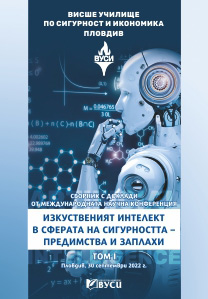
The entrance of artificial intelligence in our lives is expected to lead to the disappearance of many professions. Even though the digital transformation will probably create many other jobs, training and education will have key role for the development of skills that would avoid the long-term unemployment. New perspectives for products and services appear including in sectors like green and circular economy, sustainability agriculture, healthcare. Artificial intelligence could help for the optimization of supply chains, improvement of the machine maintenance, increase in productivity, improvement of the quality of service and energy saving. The application of artificial intelligence in the public sector could reduce costs and offer new possibilities for the public transport, education, energy management, recycling and waste management. It could contribute for better healthcare, safer vehicles, personalized and cheaper products. The work places could become safer with the use of robots and the development of new industries will create new work places.
More...
Europe's digital future and securing it with a Digital Europe package is linked to the aspiration of digital technologies to be of exceptional benefit to society and the economy. In the conditions of ever-expanding digitalization, a number of question marks appear. One of them is whether demographic security will be preserved as an element of national security and what are the parameters for the application of artificial intelligence in tandem with human potential.
More...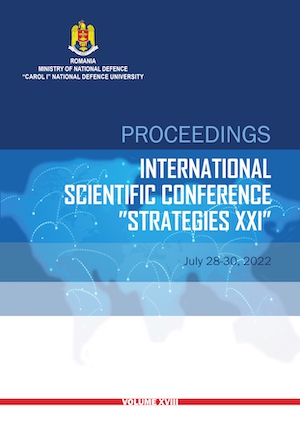
This article focused on offering a preliminary view on the most important areas in which gender equality perspective, one of the sustainable development goals, can contribute to the sustainability of human resources in the military organization and the possible effects. First, the article investigated, through a literature review approach, the conceptual dimensions of defense human resource sustainability, proposing a conceptual model which could be applied by military decision-makers to enhance the efficiency of human resource management and to contribute to the sustainability of military organization, in the context of sustainable development. Second, the article explored relevant documents, to identify the military approach to gendered issues, revealing some commonalities with the subsequent targets of the sustainable development goals and highlighting the emergence of a new military capability, represented by women’s empowerment. Finally, the proposed sustainability model and the military gender equality perspective represented a framework for identifying the contribution gender equality perspective could have to the sustainability of defense human resources. In this respect, recent statistics and the analysis of some specific on-line content offered valuable information on the practical benefits of the gender equality perspective. To conclude, this study highlights the need that the military human resource management adapt its policies, to ensure a positive contribution of the gender perspective to the permanent and functional availability of its human resource.
More...